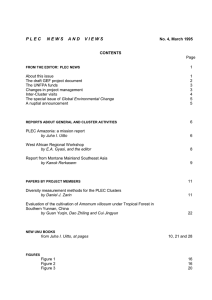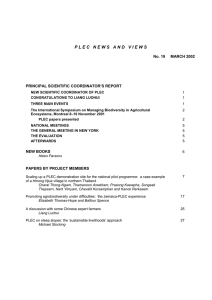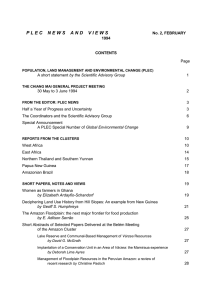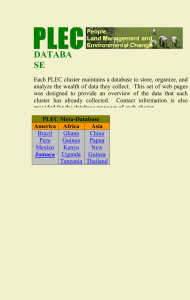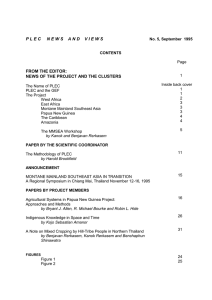Closing Statement/Remarks Robert Kileo (ZRC-L) Mr. Chairman,
advertisement
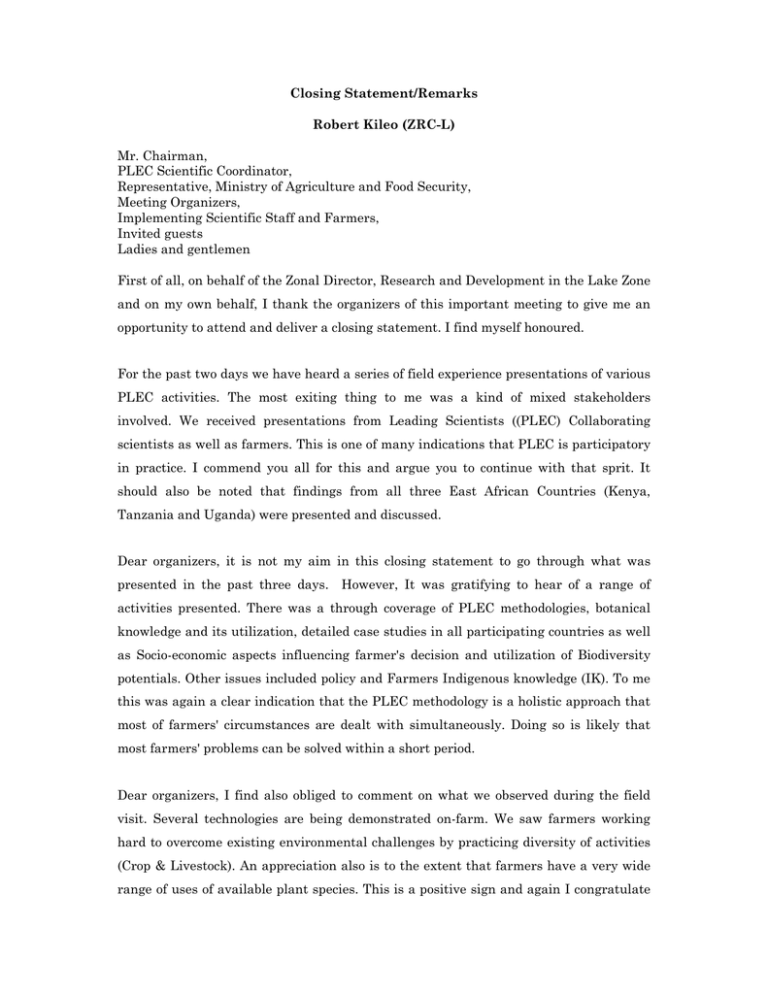
Closing Statement/Remarks Robert Kileo (ZRC-L) Mr. Chairman, PLEC Scientific Coordinator, Representative, Ministry of Agriculture and Food Security, Meeting Organizers, Implementing Scientific Staff and Farmers, Invited guests Ladies and gentlemen First of all, on behalf of the Zonal Director, Research and Development in the Lake Zone and on my own behalf, I thank the organizers of this important meeting to give me an opportunity to attend and deliver a closing statement. I find myself honoured. For the past two days we have heard a series of field experience presentations of various PLEC activities. The most exiting thing to me was a kind of mixed stakeholders involved. We received presentations from Leading Scientists ((PLEC) Collaborating scientists as well as farmers. This is one of many indications that PLEC is participatory in practice. I commend you all for this and argue you to continue with that sprit. It should also be noted that findings from all three East African Countries (Kenya, Tanzania and Uganda) were presented and discussed. Dear organizers, it is not my aim in this closing statement to go through what was presented in the past three days. However, It was gratifying to hear of a range of activities presented. There was a through coverage of PLEC methodologies, botanical knowledge and its utilization, detailed case studies in all participating countries as well as Socio-economic aspects influencing farmer's decision and utilization of Biodiversity potentials. Other issues included policy and Farmers Indigenous knowledge (IK). To me this was again a clear indication that the PLEC methodology is a holistic approach that most of farmers' circumstances are dealt with simultaneously. Doing so is likely that most farmers' problems can be solved within a short period. Dear organizers, I find also obliged to comment on what we observed during the field visit. Several technologies are being demonstrated on-farm. We saw farmers working hard to overcome existing environmental challenges by practicing diversity of activities (Crop & Livestock). An appreciation also is to the extent that farmers have a very wide range of uses of available plant species. This is a positive sign and again I congratulate you for that effort. All these efforts to me seem to be an indication that PLEC activities have contributed to farmer's income, food security and environmental conservation. I hope that the few farmers who are now participating will be the catalysts and eventually these technologies will be disseminated to other farmers and places. Together with these successes, still PLEC faces some challenges. We have heard from case studies that farming communities in Eastern African Highlands faces some threats. These include increase in human populations, land degradation and harsh weather conditions. PLEC should work harder on these by developing suitable technologies to address these challenges. Dear organizers, I am informed that you are going to have discussions on proposal development for PLEC future. This is an important step. I request you to incorporate deliberations raised up during discussions. I believe that it is possible to include some (eg scaling up, diversified donor funds etc). Lastly, I am delighted to hear that all expected/invited participants attended this meeting. I thank you all for that and encourage you to keep it up. I am aware that some of the participants came all the way from Uganda, Kenya, Arusha, Tanga and Mwanza. After this meeting, I wish you a very nice and safe journey back home or to your working places. Thank you for participating into this meeting and listening to me. After these few statements, and on behalf of the Zonal Director Research and Development, Lake Zone, I formally declare the meeting closed. Again thank you very much.
